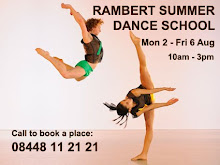 Image shows Boxing Booths at The Hoppings Fair, Newcastle upon Tyne.
Image shows Boxing Booths at The Hoppings Fair, Newcastle upon Tyne.Some of Newcastleʼs Boxing history can be found at The Hoppingʼs fair on The Town Moor, where many a bare knuckle fight took place for money. The fairground boxing booth with itʼs brightly coloured frontage displaying the names and faces of boxing heritage is now a fading memory. Boxing booths were part of the fairground tradition and were associated with fairs since the end of the eighteenth century. Newcastle’s Town Moor has always been famous for its row of shows which still dominate the skyline at the Hoppings Fair. Now the fair is full of trailer-mounted triple decker ghost trains, fun houses and crazy mirror shows.
In the nineteenth century, before the technology of the roundabout took over, fairgrounds were the home of shows and showmen. For over two hundred years the fairground boxing booth was the cradle for many of the great boxing hopefuls. During its illustrious history, fighters such a Jem Mace, Kid Furness, Jimmy Wilde and Tommy Farr all fought, exhibited on, or ran boxing shows.
It was in 1977 that the greatest champion of them all, Mohammed Ali displayed his skills for charity on the front of Ron Taylor’s Emporium. In their heyday, each region of the country would have three or four main booths travelling the fairground circuit with boxers fighting for championships at both regional and national level.
Ron Taylorʼs Boxing Academy last appeared on the Hoppings in 1995 bringing to an end a long tradition of boxing proprietors such as Len Johnson, Jack Gage and the Steward family who had been associated with the fair over the century. Ron was interviewed in 1999 and like many of the boxing booth showmen, he could trace his heritage in this noble art way back to the mid nineteenth century.

The decline of the fairground boxing booths is linked to the decision by the Boxing Board of Control in 1947 to restrict the use of licensed boxers in the booths, despite the fact that Randall Turpin, an ex-booth fighter, won the Middleweight Championship of the World in 1951 by beating Sugar Ray Robinson. It was the same year when the British Boxing Board of Control, published a series of strict conditions for booth proprietors. By the late 1950s the Board had ruled that no licensed fighters could fight competitive bouts in the ring other than exhibition rounds. Exhibition boxing replaced the bare knuckle fighting for a while, but the final bell had sounded and boxing booths were out for the count.


-Richard-Dean-Rambert-promo-small.jpg)